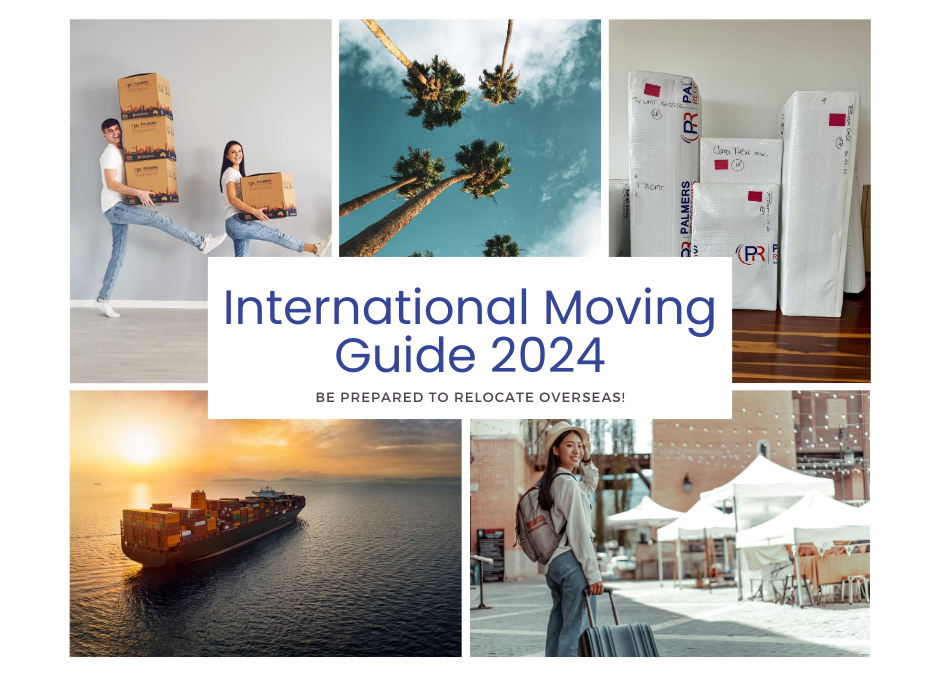Embark on Your International Adventure: A Comprehensive Guide to Moving Overseas in 2024
Congratulations! You’ve decided to embark on a thrilling adventure – moving overseas in 2024! This exciting new chapter brings a multitude of opportunities, but navigating the logistics can feel daunting. Worry not! This guide will equip you with the knowledge and tools to ensure a smooth and successful relocation.
Finding Your Trusted Partner: International Removal Companies
Selecting the right international removal company is crucial. They’ll be your partner throughout the process, ensuring your belongings are safe and secure during transit. Here’s how to make an informed decision in 2024:
- Leverage Expertise: Look for companies with a proven track record in your destination country. Seek affiliations with reputable organizations like AFRA, IAM, or FIDI Global Alliance, signifying adherence to industry standards. It is even better if the company has multiple accreditations and affiliations across the world, displaying not only its quality standards but also its network and partnership with equal-quality companies.
- Scrutinize Credentials: Request quotes from multiple companies in 2024 and meticulously compare their services (including the “international removal company checklist”). Don’t hesitate to engage in detailed discussions with consultants to understand their proposed approach and identify the company that best aligns with your specific needs and budget. Price shouldn’t be the sole factor – understand what’s included in “door-to-door” service, as some quotes may offer more value than others.
Optimizing Costs for Your 2024 International Move
The cost of your move depends on several factors. Our expertise can help you navigate these variables and optimize your budget in 2024:
- Distance Matters: The distance between your origin and destination significantly impacts shipping costs. However, regardless of the distance, we employ a range of strategies to minimize your expenses.
- Service Type: The chosen service type also plays a major role. Here’s a breakdown of common options:
- Sea Freight vs. Air Freight: Sea freight is generally the most cost-effective option for large shipments, while air freight is faster but more expensive.
- Sole-Use Container vs. Groupage Shipment: A sole-use container gives you exclusive use of the entire container, ideal for larger shipments or if you require faster delivery. Groupage shipping involves consolidating your belongings with other shipments in a shared container, offering a more budget-friendly option for smaller volumes but it would take longer.
- The Art of Downsizing: The volume of belongings you ship directly affects shipping costs. Consider a pre-move decluttering process to identify items you no longer need or would like to upgrade soon. Remember, most things can be purchased or ordered online at your destination.
Pro Tip: Declutter and Downsize! Sell or donate unused items. You can always buy essentials at your new home.
Essential Checklist for a Seamless Overseas Relocation.
Feeling overwhelmed by the seemingly endless to-do list? Relax! Our comprehensive checklist provides a clear roadmap for a stress-free relocation in 2024:
- Financial Foresight: Begin saving for your move and meticulously research the average cost of living in your new country (consider linking to a “cost of living comparison” tool if available). Research the city and various suburbs for lifestyle and distance to work, school, and amenities. Factor in expenses like rent, airfare, and insurance to establish a realistic budget.
- Invaluable Research: Immerse yourself in research about your destination country. Familiarize yourself with visa requirements (as they can change year-to-year), healthcare options, and cultural norms. Knowledge empowers informed decision-making.
- The Power of Documentation: Renew your passport, organize travel documents, and obtain any necessary vaccinations in 2024. Creating digital and physical copies of important documents ensures peace of mind.
Pre-Departure Preparations: Ensuring a Smooth Arrival
As your departure date approaches, take these crucial steps to guarantee a comfortable arrival in your new home:
- Secure Your Flight: Book your flights well in advance, particularly during peak travel seasons.
- Finding Your Haven: Arrange temporary or permanent housing at your destination to eliminate post-arrival stress.
- The “First Day” Essentials Box: Pack a box containing essential items like toiletries, chargers, remotes, a cup and medications. This will make your initial days in your new home more comfortable.
Welcome Home! Making the Most of Your New Life Abroad
You’ve arrived! Now comes the exciting part – settling into your new life abroad. Here are some helpful tips for a smooth transition:
- Establishing Utilities and Accounts: Set up essential utilities like electricity and internet. Open a local bank account to simplify financial transactions. Use an international money transfer provider like SEND Payments to Wave goodbye to annoying charges and hidden fees. It’s lightning-fast, really easy, and loads cheaper than any bank.
- Navigating Transportation: Familiarize yourself with public transportation options. Consider acquiring a local SIM card to access ride-sharing apps.
- Embrace the Adventure!: Relax, unpack, and begin exploring your new neighborhood! Embrace the cultural experiences and opportunities that await you.
Our unwavering support is with you throughout your journey. Should you have any questions or require additional guidance, don’t hesitate to reach out to our team of relocation specialists at Palmers Relocations. We are dedicated to making your international move in 2024 a resounding success story and will be along the whole time.
Get a Free Palmers Relocations Quote Today!

